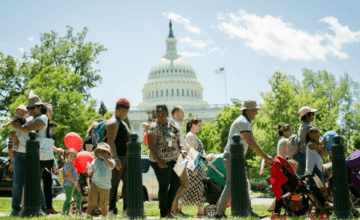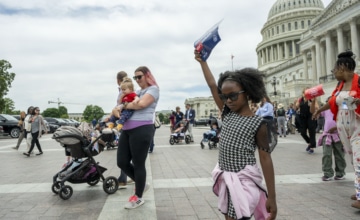Pending a decision in the Brakeen v. Haaland Supreme Court Case that could strike down all or part of the Indian Child Welfare Act (ICWA), Minnesota lawmakers have moved swiftly to protect Indigenous families and children in their state. ICWA protects American Indian and Alaska Native children in child welfare proceedings by keeping them in the care of extended family or tribes whenever possible, promoting the stability and security of children, families, and tribes. The current bill, expected to be signed by the Governor, strengthens the 1985 Minnesota Indian Family Preservation Act (MIFPA) by adding requirements that are a part of ICWA but were not specifically spelled out in Minnesota law.
Utah and North Dakota are considering similar bills this legislative session, while others have already passed older pieces that adopted strong language from ICWA into state policy, including Iowa, Michigan, New Mexico, Oklahoma, Washington, and Wyoming.
Infants and toddlers are most vulnerable to child abuse and neglect. More than 28% of children involved in child welfare, and 34% of all children entering foster care are under age 3. Almost 2% of the 11.4 million infants and toddlers in the United States are part of Tribal communities. For some families, life conditions such as community violence, trauma, physical or mental health issues, substance use disorders, or racism can magnify the normal stresses of raising children. Due to the lived experiences and intergenerational effects of institutional and interpersonal racism, Indigenous families are disproportionately affected by these challenges, leading to inequities in opportunities for their young children. Furthermore, before the ICWA, American Indian and Alaska Native children were systematically removed from their home communities and placed outside their tribes, causing additional trauma to babies and their communities. The outcome of the Supreme Court decision and state actions leading up to it will have far reaching impacts for families involved in the child welfare system for years to come.
To learn more about ICWA and find a state-by-state resource guide that includes state statutes and cases related to ICWA, visit the National Indian Law Library.




